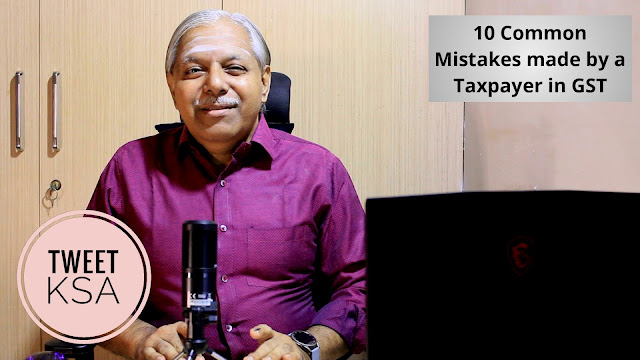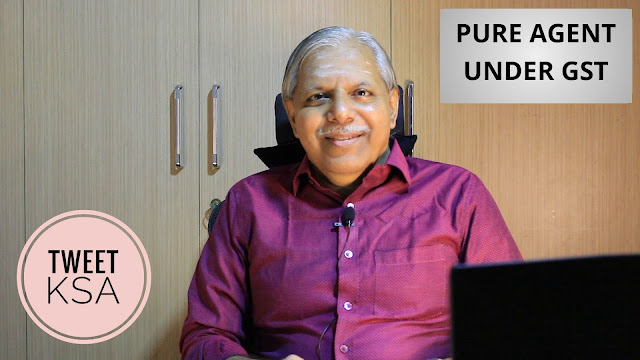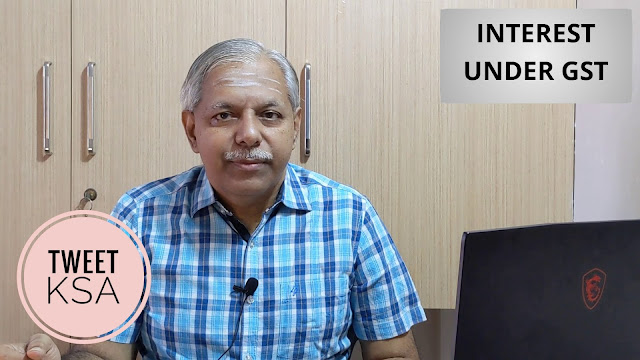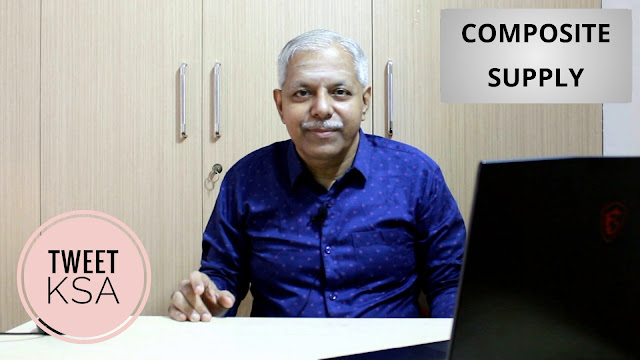E – Waybill
Gati Kintetsu Express Pvt Ltd.
v/s Commissioner, Commercial Tax of MP & others W.P.No. 12399 of 2018
07/05/2018
– It is mandatory to file
Part-B including vehicle Number before the goods are loaded in the vehicle.
Garuda Timber Traders V/s
Commissioner, State GSD Department, Kerala & Others WP(C).No. 26848 of 2018
08/09/2018
Incomplete e-way bill – Part-B
not uploaded and carrying printout. – The petitioner shall provide the bank
guarantee for the tax & penalty & bond for the value of goods and get
the goods provisionally released.
Tvl. R K Motors Vs
State Tax Officer (Madras High Court) WP (MD)No. 1287 of 2019
Seizure of goods as the goods delivered
to a different place than specified
In the case of Tvl. R K Motors Vs State
Tax Officer (Madras High Court) WP (MD)No. 1287 of 2019, the high court held
that when there is no intention to evade tax, the officers should have guided
the driver to take the goods to the destined location instead of being harsh
and vindictive.
M. R. Traders vs.
Assistant State Tax Officer ALEXANDER THOMAS, J. WP (C) NO. 2713 OF 2020(L)
(JANUARY 31, 2020
Minor difference in address cannot be
ground for detention and penalty.
Competent Authority had detained goods
of assesse under transport as well as vehicle on ground that address shown in
invoice was different from address shown in E-Way bill He further issued on
assesse a notice under section 129(3) specifying amount of tax and penalty
payable for release of goods and vehicle
K.P. Sugandh Ltd vs
State Of Chhattisgarh 53 dated 16 March 2020, WP No. 36 of 2020
Seizure of goods for reasons such as
undervaluation, wrong classification In the case of K.P. Sugandh Ltd vs State
Of Chhattisgarh 53 dated 16 March 2020, WP No. 36 of 2020, the high court held
that goods cannot be seized for the wrong valuation though the officers have
the option of intimating such mistake to assessing authority.
Integrated Constructive
Solutions v. ACST & E-Cum-Proper Officer 2020
Since Competent Authority had passed
order in a mechanical manner and had ignored corrected and updated E-way Bill
as produced by assessee within two hours of detaining goods, tax and penalty
imposed under section 129(3) was unsustainable. As assessee had made procedural
lapse and violated provisions of GST Act, it was liable to pay minor penalty
under section 122.
Neva Plantation (P.)
Ltd. v. ACSTE-CUM-PROPER OFFICER NORTH 2020
The Assessee was engaged in supply of
exempted goods – It sent a machine for repair to its supplier in a vehicle and
issued delivery challan – In delivery challan it was specifically mentioned
that ‘not for sale’ and ‘only for repair’ – Competent Authority intercepted
said machine and having found that E-way Bill had not been generated for
movement of machine detained machine and imposed tax and penalty under section
129(3) upon assessee.
Held that: The assessee had
transported machine without the cover of proper documents (E-way Bill was one
of them). Hence the assessee had violated provisions of the CGST Act/Himachal
Pradesh GST Act. For violating provisions of the Act, it would be liable to pay
penalty under section 122(1). The tax and penalty imposed upon the assessee
under section 129(3) deserved to be set aside.
Hemanth Motors v. State
of Karnataka 2021
The Assessee purchased certain goods from a
dealer located at Husur, Tamil Nadu under tax invoice dated 31-12-2018 – Said
dealer dispatched goods to business premises of assessee situated at Bengaluru
after generating e-way bill – E-way bill was valid from 31-12-2018 to 1-1-2019
– Conveyance carrying goods reached at assessee’s business premises on 1-1-2019
before expiry of validity of e-way bill but goods could not be unloaded on same
day and were being unloaded on next day, i.e., on 2-1-2019 – In
meanwhile Competent Authority visited business premises of assessee and taking
view that e-way bill had to be valid even at time of inspection when goods were
being unloaded from conveyance passed an order under section 129(3) and raised
demand upon assessee – Appellate Authority dismissed appeal filed by assessee.










